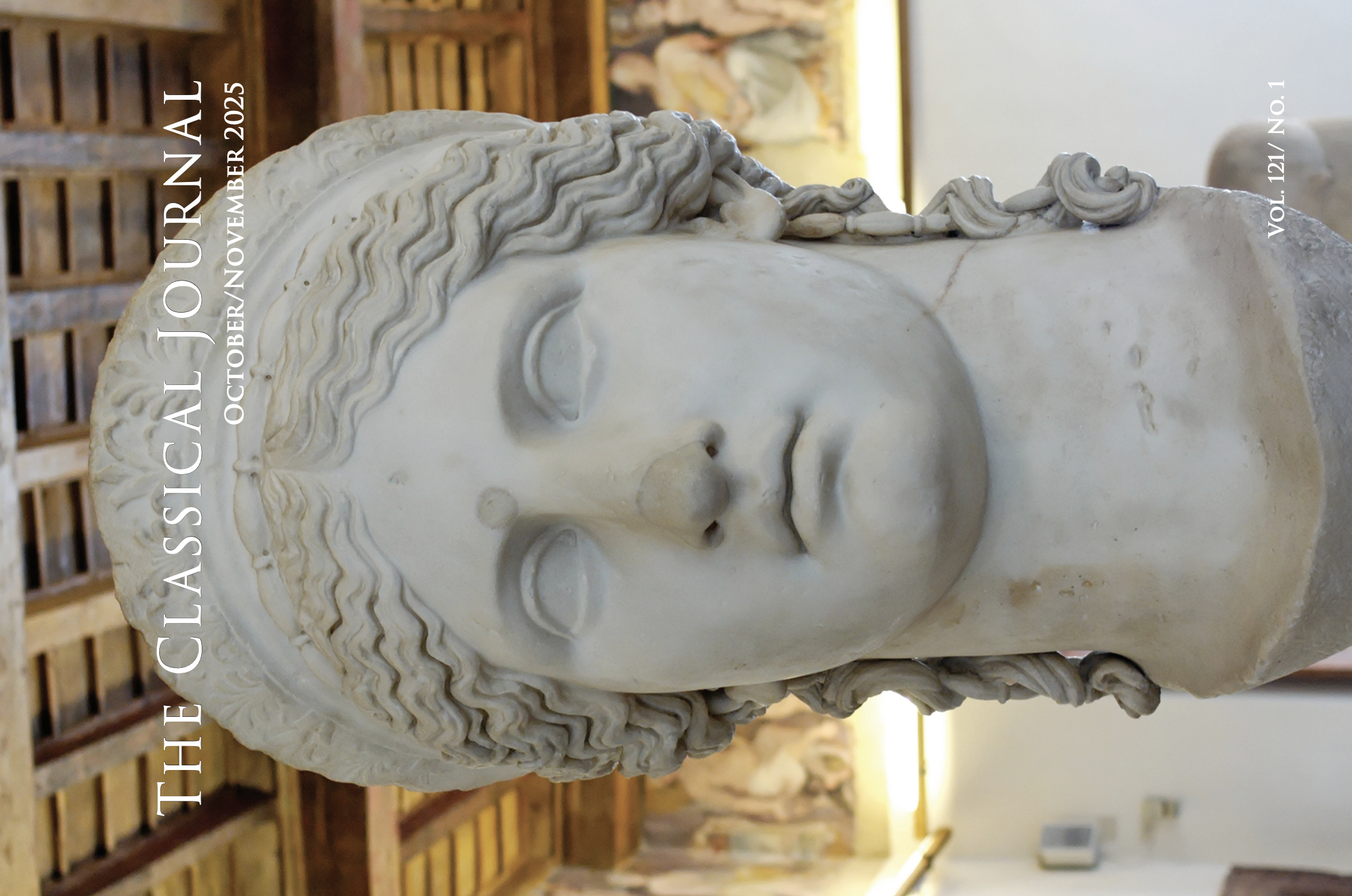The following articles are contained in CJ
106.2
Abstracts of Articles
THE TRAGIC MUSE AND THE ANTI-EPIC GLORY OF WOMEN IN EURIPIDES' TROADES
The invocation of the Muse at Tr. 511-12 alludes formally to an epic tradition to which
the tragic treatment of the Trojan War stands in contrast. By offering a different perspective
on epic themes, tragedy commemorates the fame of the victims of war, captured women and
slaughtered children, rather than the martial glory of male heroes.
UNLOCKING AENEID 6.460
The invocation of the Muse at Tr. 511-12 alludes formally to an epic tradition to which the tragic treatment of the Trojan War stands in contrast. By offering a different perspective on epic themes, tragedy commemorates the fame of the victims of war, captured women and slaughtered children, rather than the martial glory of male heroes.
Why does Virgil have Aeneas in his underworld encounter with Dido quote Catullus'
translation of Callimachus' lighthearted Coma Berenices? Virgil alludes to a long and largely
lost tradition of unwilling departure scenes that provided Callimachus with his own models and
referents. Chief among these was Euripides' Protesilaus, in which the title-character returned for
a day from the underworld to visit his wife Laodamia, left again, and thus led her, grief-stricken,
to suicide.
PHTHISICAL INTIMACY: MARTIAL 2.26
The primary joke in Martial 2.26 is that a wealthy old woman's attractions, for the
legacy-hunting suitor, lie in her symptoms of mortal illness. The present article argues that the
humor is enhanced by recognizing how, with a relentless series of double entendres, Martial
merges the language of physical morbidity with that of erotic distress and conquest.


